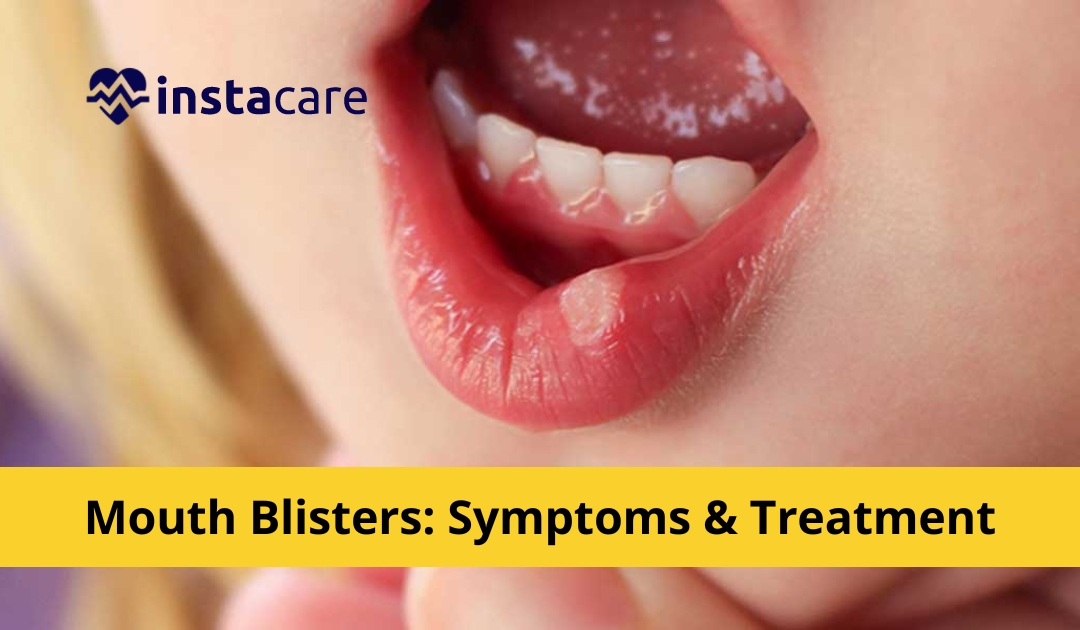Are you getting mysterious blisters in your mouth? If so, it
could be a sign of numerous medical issues. Our mouths provide us with
essential activities such as tasting food, speaking and breathing; therefore,
any sort of disruption can cause high levels of discomfort. In this blog post,
we will discuss the common symptoms associated with mouth blisters more
commonly known as oral ulcers or aphthous ulcers. We will also go into detail
about how to treat them effectively at home and what preventative measures
should be taken to ensure these painful blisters do not pop up in the future.
Read on for everything you need to know!
What is mouth blisters?
Mouth blisters, also known as canker sores, are small, shallow ulcers that appear in the mouth, usually on the inside of the lips, cheeks, or tongue. They can be quite painful, causing discomfort when eating or speaking. While the exact cause of mouth blisters is unknown, several factors can contribute to their occurrence, including stress, hormonal changes, and certain foods like spicy or acidic foods.
Fortunately, mouth blisters typically heal on
their own within a week or two, and over-the-counter treatments can help to
alleviate symptoms. If you experience mouth blisters frequently or have any
concerns, it's always a good idea to consult with a healthcare professional.
Symptoms of mouth blisters
Mouth blisters are a painful nuisance that can make eating
and drinking uncomfortable. Symptoms of mouth blisters can include small,
fluid-filled pockets that appear on the inside of the mouth, lips, or tongue.
These blisters can be red, swollen, and very painful. Eating hot or spicy
foods, drinking acidic beverages, or even stress can trigger these annoying
mouth blisters. There's no doubt that mouth blisters can be a source of
discomfort, but by practicing good oral hygiene and avoiding certain triggers,
you can reduce your chances of developing them.
Causes of mouth blisters
Mouth blisters can be quite painful and uncomfortable to deal with. There are various causes of these blisters, and it is important to identify the underlying issue in order to receive proper treatment. One common cause of mouth blisters is a viral infection, such as the herpes simplex virus. This virus can cause cold sores or fever blisters that appear on or around the mouth. Another cause of mouth blisters is an allergic reaction to certain foods or medications.
Some people may also develop blisters due to irritation from hot or spicy foods, or from dental appliances such as braces or dentures. Lastly, stress and hormonal changes can also trigger the development of mouth blisters. If you are experiencing recurrent mouth blisters, it is recommended to consult with your healthcare provider for proper diagnosis and treatment.
Treatment of mouth blisters
Mouth blisters can be a painful experience that can make it difficult to talk or eat. Fortunately, there are effective treatments available that can help relieve the discomfort and speed up the healing process. One of the most common treatments for mouth blisters is an over-the-counter topical cream that contains numbing agents like benzocaine, which can provide immediate relief of pain.
Additionally, antiviral medications like acyclovir can be
prescribed to help speed up recovery time. It's important to practice good oral
hygiene, avoid foods that can aggravate the blisters, and stay hydrated to
prevent further irritation. While mouth blisters can be a frustrating and
uncomfortable condition, with proper treatment, they can be managed
effectively.
Prevention Methods from
Prevention holds the key to maintaining good health and well-being. Whether it is a common cold or a major disease, the mantra is always the same - prevention is better than cure. In today's world, with the outbreak of COVID-19 that has shaken the entire globe, it is all the more important to follow the recommended prevention methods.
Basic practices like
washing your hands thoroughly and frequently, wearing a mask when venturing
out, maintaining social distance, and avoiding large gatherings are essential
steps towards staying healthy. Additionally, it is crucial to maintain a
healthy lifestyle by eating right, exercising, and getting enough rest. By
incorporating these simple yet effective prevention methods, we can safeguard
ourselves and our loved ones from any illness that may come our way.
Conclusion
In conclusion, mouth blisters can be both uncomfortable and potentially dangerous if left untreated. It's important to be aware of the signs and symptoms so that you can take the appropriate steps if you think you have a mouth blister. Additionally, there are several methods for treating and preventing further outbreaks of mouth blisters that can be used depending on the severity of your condition.
Although these methods may not completely
eliminate discomfort caused by mouth blisters, properly using them in tandem
with medications prescribed by doctors should ensure relief in your situation.
If after all this you still feel uneasy about your oral health, ask your doctor
to arrange a check-up or get a second opinion from another specialist —
knowledge is power!











